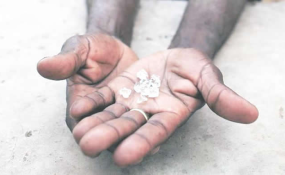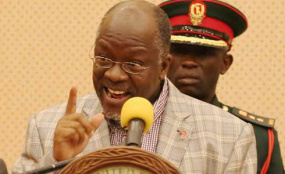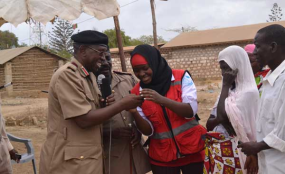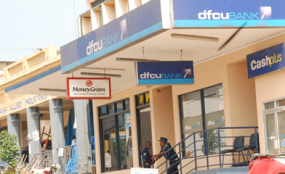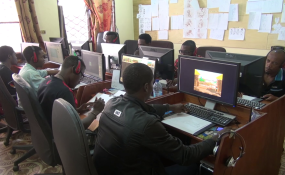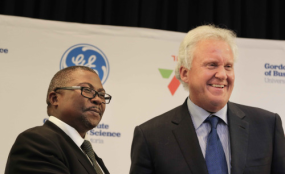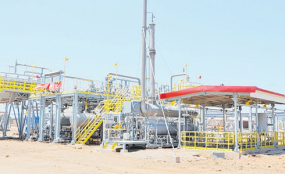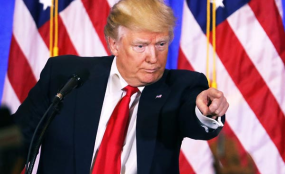THIS week the Zimbabwe Independent which in December last year began publishing fresh stories based on our ground-breaking investigation into the Marange alluvial diamonds discovery and subsequent looting exposes how the military’s “Operation Hakudzokwi” resulted in untold suffering, arbitrary arrests and deaths of innocent diamond miners in the hands of state security forces.
This special series is supported by the Investigative Journalism Fund and will continue for months.
The Zimbabwe government decided in October 2008 to deploy the Zimbabwe Defence Forces (ZDF) which comprises the Zimbabwe National Army (ZNA) and the Air Force of Zimbabwe (AFZ) and other security forces to the Marange diamond fields in a bid to take charge of a situation which was threatening to spin out of control.
While purportedly joining the fray in fighting lawlessness and chaos in the mining fields, which the state initially encouraged and fuelled, and helping out, given police’s inability to control turmoil, the military committed grisly human rights violations, including beatings, torture and extrajudicial killings, as well as forced labour and child labour in Marange.
In a swift and brutal operation, the military seized control of the diamond fields, in the process killing more than 200 people in Chiadzwa, a hitherto remote and peaceful yet impoverished part of Marange, in late October 2008.
“Operation Hakudzokwi” meaning “No Return” involved vicious targeting, hunting down of suspects and searching travellers around Mutare, with people found in possession of diamonds or foreign currency being arrested detained, or subjected to humiliation and excruciating experiences.
With the complicity of Zanu PF and government officials, the diamond areas became a zone of lawlessness, killings and impunity, a microcosm of the mayhem and brutality which pervaded Zimbabwe at the height of hyperinflation and the economic meltdown.
Security forces moved in and out of Marange to ensure that they drove out the miners and cleared the path for themselves and later mining companies chosen by the government.
Before the military moved in, the police committed serious human rights abuses – including harassment, beatings, torture and killings — while they also battled for access to the mining fields with the illegal miners.
With the police failing to control the anarchy, the army moved in on October 27 2008 and all hell broke loose after that.
Between November 1 and November 12 that year, it was reported that over 100 people were killed and this became part of the overall death toll of over 200.
The scars of the Chiadzwa crackdown are still fresh on some of the victims.
In an interview this week, John Gwite, a victim of the campaign, narrated how his brother Tsorosai Kusena died after beatings and torture by soldiers.
Another victim was well-known businessman, Maxwell Mandebvu Mabota, who was badly beaten in Nyanyadzi during the clampdown. He died of multiple organ failure in a South African hospital.
Gwite sustained life-threatening injuries which have forced him out of his job as a builder. He says he will never forget the trauma he suffered during the attacks.
“On September 23 2011, we were cleaning our community well. Our village is about a kilometre away from the Mbada concession,” Gwite told the Independent.
“We were four together with Tsorosai who was our elder brother. We were using shovels to clear all the mud in the well because in September the wells quickly dry leaving us without water,” he said.
“Mbada security guards, who knew us so well, then approached us and accused us of trying to mine diamonds in their concession when it was clear we were clearing a well.
“Tsorosai told them that we were cleaning the well as it was getting dry because of the mud, but the security guys dismissed him and forced us into their truck.
Gwite said they were taken to the diamond base and when they arrived there they were frog-marched on the concrete pavements until their knees bled profusely.”
He added: “We were made to crawl and were frog-marched on the concrete pavement for some considerable distance and a long time. In the process we were beaten by soldiers at the base who took turns to assault all over our bodies, including the backbones, as we were lying on our stomachs. They concentrated on beating us on the backbones.
“When they (soldiers) felt tired they would ask us to put our heads on the ground ‘kutakura nyika,’ (to carry the country) until our necks could not withstand the pressure.”
Gwite said the beatings and torture went on until late evening and all the victims eventually succumbed to the brutality and lay prostrate and unconscious on the concrete pavement.
“At around 9:30pm Tsorosai started groaning and then asked for some water to drink, but the soldiers refused to give him. His other younger brother, Pikirai, rose from where he was lying and gave Tsorosai some water, but he was thoroughly beaten for doing so. After a few minutes Tsorosai lay about hiccupping and groaning in pain before he died.”
Gwite said later one of the soldiers confirmed that Tsorosai had died.
According to a Human Rights Watch report, titled Diamonds in the Rough, released at the time, the violence and brutality was chilling.
“More than 800 soldiers drawn from three army units–Mechanised Brigade and No. 1 Commando Regiment based in Harare and the Kwekwe-based Fifth Brigade–carried out the operation under the overall command of Air Marshal Perence Shiri, commander of the AFZ, and General Constantine Chiwenga, commander of the ZDF,” the report said.
“The first three weeks of the operation were particularly brutal– over the period October 27 to November 16, 2008, the army killed at least 214 miners. The army has also been engaged fully and openly in the smuggling of diamonds, thereby perpetuating the very crime it was deployed to prevent.”
The report also said “five military helicopters with mounted automatic rifles flew over Chiadzwa and began driving out local miners. On the ground, over 800 soldiers were ferried to Chiadzwa in seven large trucks, several smaller trucks, and an army bus. From the helicopters, soldiers indiscriminately fired live ammunition and teargas into the diamond fields and into surrounding villages.”
It added: “According to several villagers who witnessed the operation, soldiers fired their AK-47 assault rifles indiscriminately, without any warning. In the panic that ensued, there was a stampede, and some miners were trapped and died in the structurally unsound and shallow tunnels.
According to witnesses, soldiers searched the bodies of dead miners on the field and took all diamonds and any other valuables they found.”
The report also details how Mabota was killed.
“On December 24 2008, Brigadier-General (David) Sigauke lured Mabota to Nyanyadzi,” the report said.
“When Mabota arrived, Sigauke and 17 other soldiers accused him of smuggling diamonds and drove him to the diamond fields where they assaulted him using iron rods, booted feet, clenched fists, thick tree branches, and butts of their rifles demanding information on other buyers of diamonds.
“According to a human rights lawyer who interviewed Mabota before he died, the soldiers assaulted Mabota for several hours and stole all of his money and valuables-US$11 000, two mobile phones, and his car-before handing him over to the police, who in turn, took him to a hospital in Mutare. Mabota named Brigadier-General Sigauke as one of the soldiers who tortured him.”
A medical doctor who examined Mabota in Mutare said: “As a result of severe and repeated blows using blunt objects, (the) patient (Mabota) suffered kidney failure and perforated lungs. After two weeks of no improvement his family transferred him to South Africa where he died upon arrival on January 8 2009.”
Police made no arrests in connection with Mabota’s death.
Gwite said Tsorosai’s brutal death was microcosm of the wave of killings in Chiadzwa which remain a scar on the conscience of the community and the nation.

